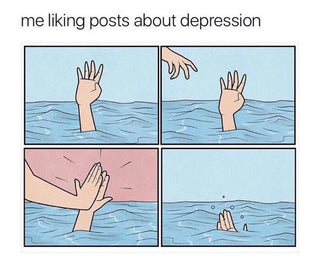In 2016, Suicide Squad was released. Opening to flaccid box office performance and general critical loathing, it may be the most cringeworthy example yet of mainstream money attempting entry into the youth misery market.
The plot: fundamentally broken misfit outsiders, betrayed by those in power, assert that their dysfunctional identities are valid. The writing: mental illness mascot Harley Quinn dropping lines like, “I need a victim, a mind to pry apart and spit in.” The purple-green-blue-pink sickly vaporwave colors. The soundtrack centerpiece “Heathens” by Twenty One Pilots. The actual name of the movie. All of these point to Hollywood executives trying to understand what’s happening to young people, on the internet, in the privacy of our bedrooms.
It was a sad attempt, shoehorned into a painfully typical superhero-action tentpole, but it won’t be the last attempt, because there’s big money in mining the disillusioned emotional wasteland of contemporary youth. We live in an era when isolation and pain are typical topics of conversation in young in-group spaces online, and teens and young adults are historically the most fertile ground for the attention of marketers and culture-pushers.
The Atlantic recently published a thoroughly researched deep-dive into the effects of social media and screen time on young adults, and those effects, though not exactly shocking, are surprising in their breadth and severity. Increased screen-and-social-media time is correlated with lessened desire to hang out with friends in person, avoidance of life milestones like acquiring a driver’s license or moving out of the family home, less dating, less sex, and an increased tendency to experience loneliness.
“Enlightened The Secret capitalism has fomented a revolution in unhealth.”
Inside the bubble of youth culture, especially alternative culture, these trends are news to precisely nobody. Young online art spaces are saturated with memes about mental health, songs about xanax, sad-girl explorations of the liberating nature of femme emotional expression, and sad-boy assertions of toxic, myopic masculine angst.
Many of these online voices and textures simultaneously explore queerness, intentional fragility, sadness, asexuality, and unproductive behavior—in part because there’s so much pressure in contemporary capitalist culture to be simultaneously happy, hetero, horny, healthy, strong, and productive. Wellness culture and the go-get-’em, follow-your-dreams start up mentality have bred unintended social consequences: since every insistent cultural hegemony gets balanced by young rebellion, enlightened The Secret capitalism has fomented a revolution in unhealth.

